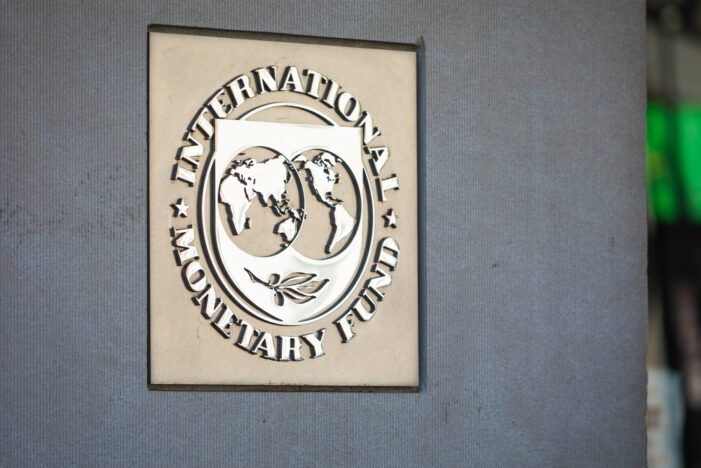By Linda Nwoke
The twin-island Republic of Trinidad and Tobago, located in the southern Caribbean, has a relatively high GDP per capita compared to other Caribbean countries. Since 1970, when they discovered and started oil production, they built a mixed economy that relies primarily on its oil and gas industry, which accounts for about 40% of its GDP and 80% of its exports.
The oil and gas discovery in the early 20th century contributed immensely to the country’s economic growth and development. The boom caused the twin countries to invest massively in infrastructure, expand their manufacturing industry, and diversify their economy, including tourism and financial services.
However, the reliance on the oil and gas industry also made it vulnerable to fluctuations in global oil prices. Hence, in the 1980s, falling oil prices led to an economic downturn and instability, causing high inflation, high unemployment, and a decline in living standards.
Again, like other countries worldwide, in 2020, the COVID-19 pandemic significantly impacted
Trinidad and Tobago’s economy, causing a contraction of about 6.2% in GDP, further strained the country’s economic situation, particularly in recent years.
The country has experienced low economic growth, high public debt, and high levels of unemployment, among other issues causing increased pressure from international financial institutions, like the International Monetary Fund (IMF), to implement economic reforms.
The IMF’s Approach to Economic Reform in Developing Countries
For many decades, the International Monetary Fund (IMF) has promoted economic reform in developing countries by providing loans and technical assistance in exchange for implementing economic reforms and policies that promote macroeconomic stability and growth.
Specifically, they introduce measures like reducing government spending, increasing taxation, and implementing monetary policies to control inflation. Furthermore, IMF often recommends structural reforms, such as improving the functioning of financial systems, reducing trade barriers, and promoting private sector development. These reforms aim to address underlying structural issues that may hinder economic growth.
However, their approach to economic reform has been criticized, arguing that their policies and recommendations lead to adverse social outcomes, such as increased poverty and inequality. Others say that the IMF’s focus on austerity measures and structural reforms is only appropriate for some countries and may fail to address the root causes of economic challenges.
Although in recent years, the IMF has emphasized the importance of country ownership and tailored its policy recommendations to the specific circumstances of each country. During economic reform programs, the organization has also stressed social safety nets and targeted measures to protect vulnerable populations.
Trinidad’s Relationship with the IMF
Trinidad and Tobago had a long-standing relationship with the International Monetary Fund (IMF), dating back to the early 1960s when the country first joined the organization. Since then, Trinidad has received several loans and technical assistance programs from the IMF to promote economic growth and stability.
Over the years, Trinidad’s relationship with the IMF has been characterized by a mix of cooperation and criticism despite the country receiving significant support from the IMF. Particularly, Trinidad criticized the organization’s policy recommendations and has worked to develop economic reforms tailored to its unique circumstances.
For instance, one of Trinidad’s most significant IMF programs was the Structural Adjustment Program (SAP), implemented in the 1980s. More recently, Trinidad worked with the IMF to develop a reform program addressing the country’s fiscal challenges, specifically their high public debt levels and persistent budget deficit. In 2016, Trinidad and Tobago entered an IMF Stand-By Arrangement (SBA), which provided the country with a financial safety net and technical assistance to support its economic reforms.
However, Trinidad has also been critical of the IMF, particularly with the organization’s policy recommendations. Some officials in Trinidad have argued that the IMF’s recommendations are too focused on fiscal austerity measures and do not consider the country’s unique economic challenges.
Reason Trinidadian Cabinets are Resisting IMF’s Pressure to Devalue Their Currency
A case in point is the recent pushback by Trinidad’s government in resisting efforts by the International Monetary Fund (IMF) to devalue the local dollar, which is an offshoot from a recent IMF report that indicated that the dollar is overvalued by more than 18 percent and should be adjusted to reflect the actual realities.
The report observed that the multilateral agency encourages Trinidad to maintain policies that support the exchange rate and hike interest rates in commercial banks. According to the fund, “Increasing the policy rate should contain inflationary pressures and limit the interest rate differentials with the US monetary policy rate.” The fund claims it would mitigate the risks of capital outflows and reduce incentives that could threaten financial stability.
However, the Trinidadian administration, led by Prime Minister Keith Rowley, strongly resists the stand based on past experiences implementing similar policies with disastrous economic implications like inflation, economic decline, and unemployment.
The neighboring country, Suriname, recently succumbed to the fund’s pressure and devalued its Currency to stop the decline in the Surinamese dollar, trading at US$36-1, down from $7-1 back in mid-2020.
Sadly, all these are driven by the closure of the main Petrotrin Oil refinery in south Trinidad and the steady decline in the daily oil production in Tobago, causing neighboring CARICOM states to seek new suppliers for oil and reduce foreign exchange inflows.
Possible Reasons IMF Wants to Devalue the Trinidadian Currency
There are a few reasons why the IMF is pressuring Trinidad to devalue its Currency ranging from the need to boost competitive exports, adjusting trade and fiscal imbalance as explained below:
Boosting Export Competitiveness: The proposal is that the devaluation of the Trinidadian Currency will make Trinidad’s exports more competitive on the global market. When a country’s Currency is devalued, its exports become cheaper for foreign buyers, increasing demand for those exports. This can be particularly important for Trinidad, which relies heavily on its oil and gas exports.
Correcting Trade Imbalances: Devaluation can also help correct trade imbalances by making imports more expensive. When a country’s Currency is devalued, importing goods from other countries becomes more costly. This can help reduce imports and increase exports, which can help improve the country’s balance of trade.
Addressing Fiscal Imbalances: The IMF may also press Trinidad to devalue its Currency as part of a broader fiscal reform. Generally, devaluation can help reduce government spending by making importation more expensive, reducing the country’s trade deficit, and improving its budgetary balance.
However, currency devaluation can also have adverse effects, like increasing inflation and reducing the purchasing power of citizens. The Cabinet’s resistance to depreciation may be driven by a desire to maintain fiscal stability and preserve national sovereignty. Thus, while the IMF’s recommendations may be well-intentioned, the Cabinet may explore alternative solutions better suited to the country’s unique economic challenges.
The Implications of Trinidad’s Resistance on the Country’s Economy
The decision by the Trinidadian Cabinet could have positive and negative implications for the economy. For instance, resisting devaluation may help the country maintain currency stability and prevent inflationary pressures from rising, thereby increasing investor confidence and support for the country’s credit rating. Arguably, it could be necessary for accessing international capital markets in the future. In addition, it can mitigate some of the potential adverse effects of devaluation – increased import costs and potential social unrest.
On the flip side, resisting devaluation may limit the potential benefits of depreciation, making it more difficult for the country to balance its trade flows and improve its overall economic stability. It can also limit the country’s ability to access IMF support in the event of future economic challenges.
Therefore, such proposals must be carefully considered, taking note of the country’s unique economic circumstances, especially the potential benefits and drawbacks of both devaluation and otherwise.
Trinidadian government should continue to work closely with the IMF and other international partners to develop a comprehensive economic reform program tailored to the country’s unique circumstances and note the underlying structural challenges hindering economic growth and stability.

